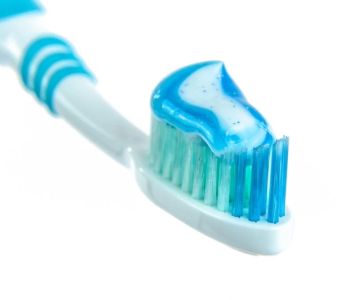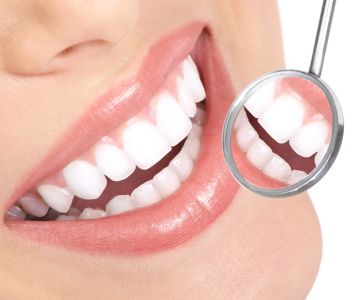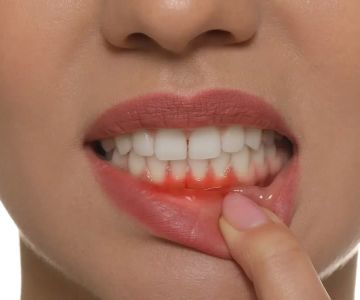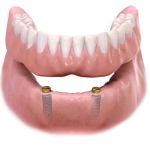What is Gum Disease and Its Early Stages?
Gum disease, also known as periodontal disease, is an inflammation and infection of the gums and the bone that supports your teeth. The early stages of gum disease, such as gingivitis, can often go unnoticed as they may not cause significant pain. However, early signs like red, puffy, tender, or swollen gums, bleeding during brushing or flossing, and bad breath can indicate the onset of the problem.
The Causes of Gum Disease in Its Early Stages
The build-up of dental plaque is the primary cause of gum disease. Plaque contains various types of bacteria that can infect the gums. Poor oral hygiene, smoking, diabetes, autoimmune diseases, hormonal changes, stress, genetics, and heart disease can all increase the risk of developing gum disease in its early stages.
Symptoms and Diagnosis of Early Gum Disease
Symptoms of early gum disease may include reddish or purplish gums, bleeding, soreness, bad breath, an unpleasant taste, pain when chewing, gum recession, loose teeth, and a change in the way your teeth fit together. Dentists can diagnose gum disease during a routine examination by looking for plaque build-up on your teeth, measuring the pockets around them, and taking dental X-rays.
Treatment Options for Early Gum Disease
In the very early stages of gum disease (gingivitis), it can be reversed with regular dental cleaning and improved oral hygiene. Scaling and root planing is recommended for mild gum disease. For more advanced cases, pocket reduction surgery, bone grafting, gum grafting, guided tissue regeneration, and platelet-rich fibrin or plasma therapy may be necessary.
Prevention of Gum Disease in Its Early Stages
Preventing gum disease in its early stages is crucial. You can lower your risk by brushing your teeth two to three times a day, flossing daily, using an antibacterial mouthwash, avoiding smoking and tobacco use, and visiting your dentist for regular cleanings and exams. Even if you have a genetic predisposition or other health conditions that make you more prone to gum disease, frequent cleanings with your dental hygienist can help.
Outlook and Prognosis for Early Gum Disease
Although gum disease is not life-threatening, it can lead to other health conditions if left untreated. Early detection and treatment of gum disease can help manage oral health and reduce the risk of tooth loss. With proper treatment and consistent oral hygiene, the progression of gum disease can be controlled and, in some cases, reversed.
Gum disease is a common and serious issue, but with awareness and proactive measures, it can be managed and even reversed in its early stages. By maintaining good oral hygiene, seeking timely dental care, and understanding the risks and symptoms, you can protect your teeth and gums and enjoy a healthy smile for a lifetime.






 City Dental- Dental Implants and Orthodontics4.0 (40 review)
City Dental- Dental Implants and Orthodontics4.0 (40 review) Downtown Dental Center4.0 (114 review)
Downtown Dental Center4.0 (114 review) Todays Dental Of Joliet (formerly Hammes Family Dental)4.0 (130 review)
Todays Dental Of Joliet (formerly Hammes Family Dental)4.0 (130 review) Berg Dental Group4.0 (70 review)
Berg Dental Group4.0 (70 review) Holden Barry L DMD, PC4.0 (10 review)
Holden Barry L DMD, PC4.0 (10 review) Midjersey Family Dentistry4.0 (86 review)
Midjersey Family Dentistry4.0 (86 review) The Importance of Oral Health Education During Pregnancy for a Healthy Pregnancy
The Importance of Oral Health Education During Pregnancy for a Healthy Pregnancy Best Tips for Brushing Your Teeth Properly for Healthy Gums: Essential Techniques for Oral Health
Best Tips for Brushing Your Teeth Properly for Healthy Gums: Essential Techniques for Oral Health Why Skipping Dental Checkups Can Lead to Bigger Oral Health Problems
Why Skipping Dental Checkups Can Lead to Bigger Oral Health Problems Advantages of Porcelain Dental Restorations
Advantages of Porcelain Dental Restorations How Can Diabetes Cause Tooth and Gum Problems? Preventing and Managing Oral Health Issues
How Can Diabetes Cause Tooth and Gum Problems? Preventing and Managing Oral Health Issues Healthy Habits for Promoting Good Oral Health and Hygiene: Tips for a Healthy Smile
Healthy Habits for Promoting Good Oral Health and Hygiene: Tips for a Healthy Smile